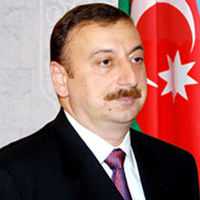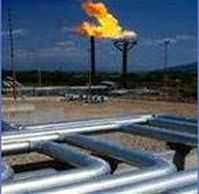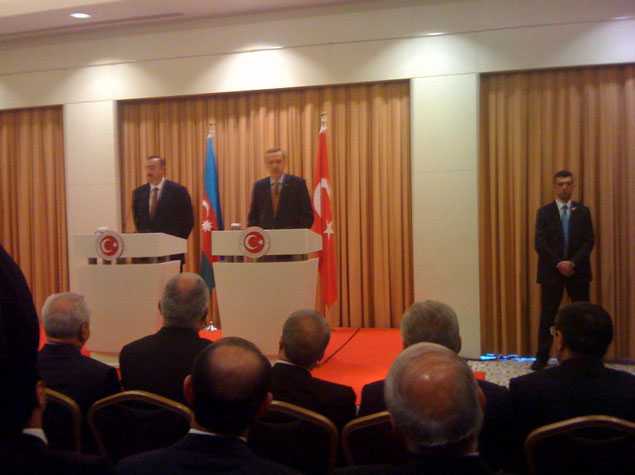Hasan Selim Ozertem, USAK Center for Energy Studies
Although Ankara had to give up a lot of dreams beyond the Caspian Sea due to regional geopolitics and geographical reasons, it succeeded in developing a complex relationship with Azerbaijan.

Twenty years ago, the Soviet Union was divided into fifteen republics. The resulting picture necessitated Turkey returning to a geography in which it was alienated as a result of the controlling policies of the Soviets. In the reconstruction process of five Turkic states, four in Central Asia, and Azerbaijan in the Caucasus, Turkey did not hesitate to take the initiative. If we look back, we can say that Turkey could not realize its dreams beyond the Caspian Sea due to regional geopolitics and geographical reasons, but succeeded in establishing a complex ties with Azerbaijan.
Located west of the Caspian Sea, Azerbaijan has experienced various problems in integrating into the international system after seventy years of Soviet administration. The first of them was the outbreak of war in Karabakh in 1988, which emerged as the biggest obstacle to experiencing a normal transition period for the country. Until the ceasefire agreement was signed in 1994, the country had serious troubles in the areas of security and economics, but after Heydar Aliyev’s coming to power, it entered a rapid recovery process.
In that period, Turkey sided with Azerbaijan and closed its border with Armenia in 1993, in response to Armenia’s occupation of the territory of Azerbaijan and human rights violations. This step opened the way for Turkey to share a common fatewith Azerbaijan, but in the long run paved the way for the narrowing of its maneuvering area.
Baku’s Flirting with Moscow
The entering into service of the Baku-Tbilisi-Ceyhan crude oil pipeline in 2006 and the delivering of gas via the Baku-Tbilisi-Erzurum line the next year were important turning points for Azerbaijan. Because from 2006 to the end of 2008, when the global financial crisis occurred, Azerbaijan has grown by over 20 % and thus had a chance to recover from its economic problems and modernize its military. The completion of these projects creates an important success story for Turkey, but Ankara, having difficulties reaching beyond the Caspian Sea, could not take its current relations beyond the level they were in the 1990s. Even at certain points, it was seen that the existence of Ankara was relatively weakened by the gradual growth of Russia in the region. It should be noted that the Georgia-Russia war which erupted in 2008 played an important role in that issue.
The Kremlin, taking an aggressive stance in its backyard starting in the 2000s, sent important messages to both countries of the region and to the West with this war. Looking at Turkey-Azerbaijan relations, two important factors gain clarity. The first factor was the need for Baku to redefine its relations with Russia, which until 2008 Baku had always tried to keep balanced. The first reflection of that was the Kremlin’s monopolization of the Karabakh problem’s solution process since it wants to be the primary actor in solving the problems in its backyard. The second reflection was the symbolic but politically significant natural gas treaties signed between Azerbaijan and Russia.
The second important factor was the normalization process of Turkey-Armenia relations. In Baku, a pro-Russian clique close to the administration used the normalization process as a propaganda tool and that played a catalytic role in the rapprochement between Azerbaijan and Russia. In that process, which turned into a test of sincerity, some conflicts between Turkey and Azerbaijan entered the political scene. The closure of Sehitlik Mosque which was built in Azerbaijan by Diyanet, hauling down of Turkish flags in the country, assumption of a rigid attitude on the mutual abolition of visas, and adoption of a strong language toward Turkey were reflections of the tensions that occurred in that process. Yet, examples of Baku’s attitude seen in Wikileaks documents were quite interesting. Aliyev did not refrain from using expressions that underestimate Turkey in the meetings with American authorities.
Azerbaijan’s search for exercising power over Turkey
While we see acceleration in Baku-Moscow flirtations after 2008, it became apparent that Azerbaijan did not choose to completely cut its relations with Turkey. Inthat period, Baku a fortiori preferred to exercise power over Ankara. A positive public perception of Turkey in Azerbaijan was effective in İlham Aliyev’s not extravagating in that partly successful policy. As a consequence, Baku, taking public response into account, continued to exercise power over Ankara while managing the perceptions of the public.
On the other hand, Turkey did not take a stance that will raise tension against such steps, on the contrary; it took concrete steps to normalize strained relations. Prime Minister Erdoğan did not abstain from sending clear messages in the Azerbaijani parliament after the signing of protocols. That initiative weakened the hand of Turkey in relations with Armenia but helped Erdoğan regain power in Baku. In other words, while not being able to take a step back from the decision taken in the 1990s to close the borders, an era in which relations with Azerbaijan are defined in terms of policies toward Armenia has started. As a result of this, Turkey is faced with a question that asks how to turn the equation in a zero-sum game in its favor. This equation has not yet been solved.
At this point, we cannot say bilateral relations are at a specific level they had been in 1990s, but it is a fact that Turkey’s current position maintains its critical importance in Azerbaijan’s westward expansion. In this respect, Turkey is still seen as an important ally that is not dispensable in Baku. For Turkey, the situation is not so different. After the June 12 elections, PM Erdoğan’s first visit abroad after Cyprus was to Baku, and that illustrates Azerbaijan’s importance in Turkish foreign policy.
Nevertheless, in order to bring current relations to a more robust structure for the next twenty years, more than diplomatic jests are needed. Strengthening its economic and strategic position in the Caucasus is very important for a Turkey that wants to be a regional power, and for the turning of perception in Azerbaijan in favor of Turkey. But, Ankara, having to amend the paradigm with Armenia toward 2015, has to find ways to avoid a crisis in its relations with Azerbaijan.
*This piece was translated by Nihal Cizmecioglu.
Tuesday, 18 October 2011
Hasan Selim Ozertem, USAK Center for Energy Studies






